From Beirut to Berlin, Perth to Orange County, Moscow to Nanjing, 42 labels are joining the Indonesian underground in imagining a decentralized musical future. Even as DIY duo Senyawa planted the seeds, Alkisah seems a movement as much as an album release.
The idea might seem crazy at first – share all the materials for a release, tracks and stems and artwork at all, and then set it free with any other label who wants to put it out.
“It’s way more than we expected,” Senyawa’s Rully Shabara tells me. “That’s part of the experiment though – to see what will happen if we let go of control.”
It’s hardly the same vinyl over and over again, either. You might get a tape or a CD. You might get a jar of sambal (the iconic Indonesian spice mixture). You might get a handmade dagger. (Take that, Spotify!)
And this weekend, it’s all part of an online festival that is equally decentralized and international – complete with live jams, prerecorded music videos, and a cooking show. Here’s the explanation from the artists:
https://linktr.ee/alkisah_global
But Senyawa itself was born of serendipitous encounters and spontaneous networks. The duo of Rully, vocalist, with Wukir Suryadi, maker of instruments, met at a show at Yes No Klub in Yogyakarta. Even if this project rejects decentralization, it does benefit from hubs and meeting places and even various capital cities – Yes No is a cassette label and an event series, in the warm embrace of local musical legend Wok the Rok. If Indonesia has started to gain wonderful notoriety for its experimentalism, with the likes of Senyawa and Gabber Modus Operandi and Y-DRA (and their welcome invasions of Berghain), Yes No has clearly had a role.
But quietly, other networks are forming, too – connections with Senyawa, with one another, with more futuristic and cooperative notions of what music making is about. The surprise bounty of Senyawa releases this month reveals just how many artists and labels seem to desire more sharing, freedom, and experimentation in music releases.
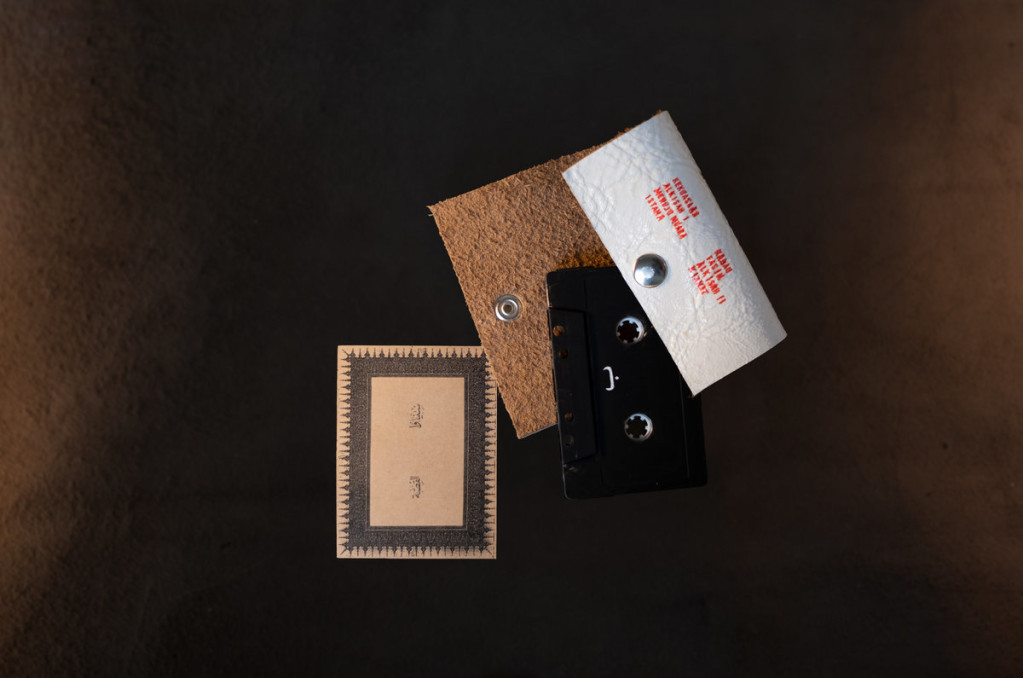

In Amman, Jordan, it’s Drowned by Locals. In the UK, it’s Phantom Limb and Avon Terror Corps. In Moscow, SOTA. In China, WV Sorcerer, with names both familiar (like 33EMYBW) and new. In Milan, there’s Artetetra. The USA has Burning Ambulance. Beirut has Ruptured (who I’ve written about before).
Notably, Indonesia itself demands decentralization. Artists I know have moved from Yogya to Bandung, even just in central Java. Accordingly, the Alkisah project makes a necklace across Indonesia’s span of 17000+ islands, with a dozen labels from the project’s home country alone.
Actually, here – just have a look at the map:
You can also check the BuyMusic.club list and grab whichever you like from Bandcamp – choosing by geography or even which cover you like best:
https://buymusic.club/list/alkisah_global-all-akisah-bandcamp-releases
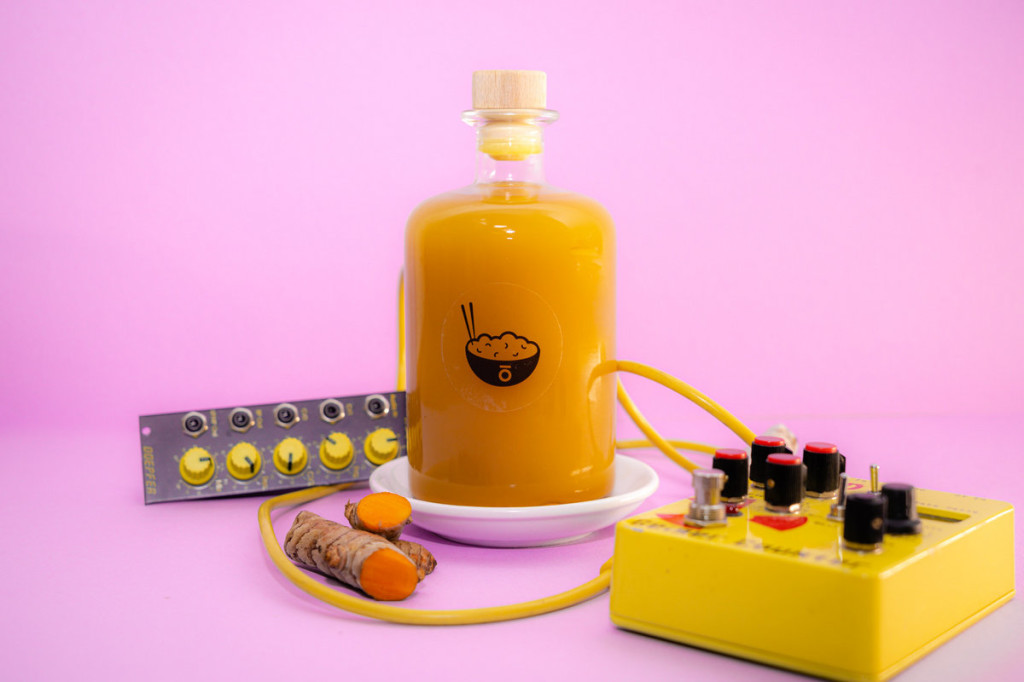
Alkisah and powerful tales of dystopia
“What is power when the end is at hand?“
The best place to start is with the arresting narrative at the release.
The album’s lyrics – all in the shared Indonesian language apart from one in traditional West Sumatran Minang words – trace a progression through dystopia and doomsday. To me, that arc takes on an archetypal shape, as at home in this experimental conceptual context as it might be in the hands of a dhalang.
Alkisah itself can be translated to Once Upon A Time
Alkisah I is basically a prologue to a story that is being told in the rest of the songs
Kekuasaan = Power (as in dominion, control)
The short lyrics translated: “what is the meaning of power when the end is at hand?”Menuju Muara = Towards the Estuary
Tells the story of people realizing the end is near decide to rush towards the estuary and build a better civilization to survive the apocalypseIstana = Palace
The people in the estuary becomes just another ruler, and worseKabau = lyrics are written in Minang language of West Sumatra, translated as Ox or Buffalo A collection of Minang old proverbs, a reminder of the old world that was left behind before the estuary, about its wisdoms and humility
Fasih = Eloquent
People revolt against the rulers of the estuary, who are eloquent in preaching about creating a better world but have created a worse one instead. The people finally speak their mind and rise up to kill them all.Alkisah II is a conclusion to the story. The regrets, the realization of all the destructions that have happened because of greed and hatred toward each other.
But it is all too late
Kiamat = Doomsday
The doomsday is upon us
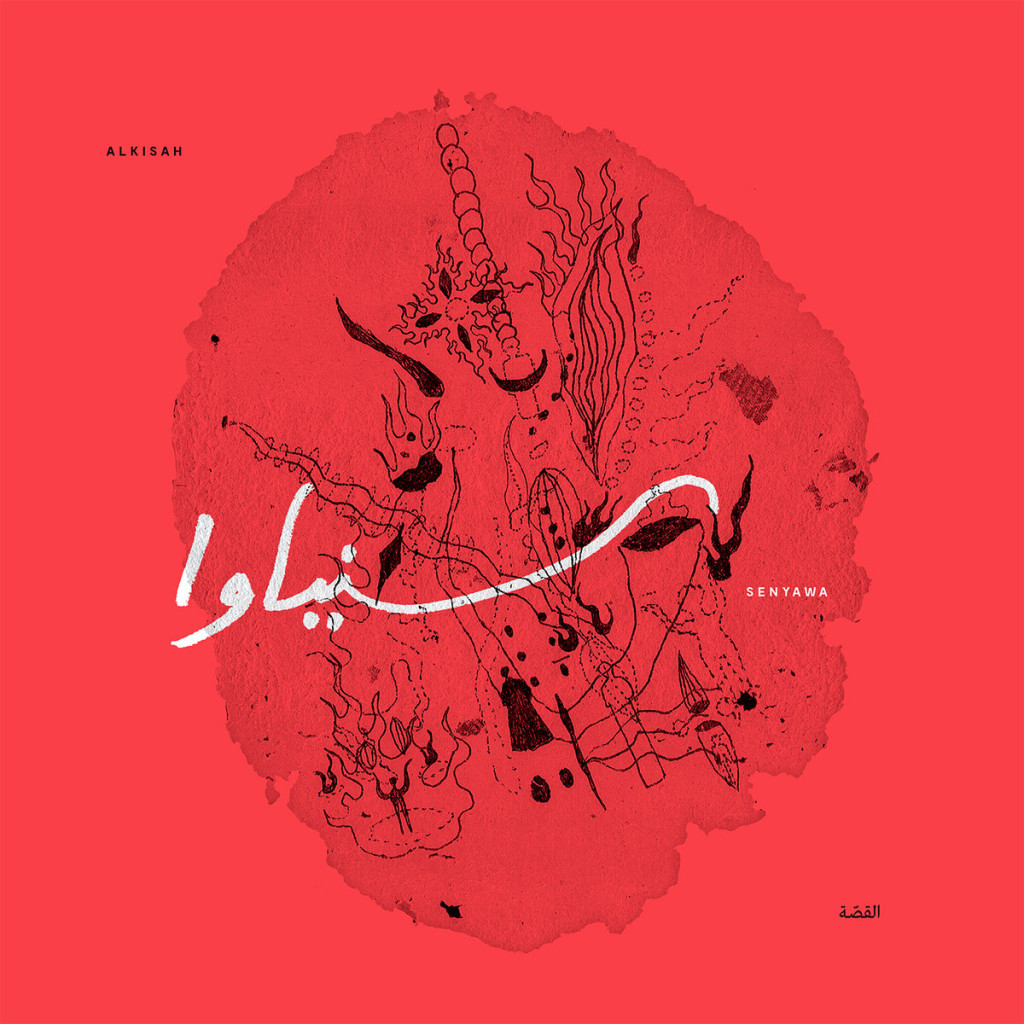
I got the translation after hearing the music, and I’m struck by how much the emotional reality of the music is interwoven with the sound. Wukir I first met because of his instrument-building practice – he produces original “modern-primitive” instruments, adapting contact mics and strings and found pieces of metal to transform recovered objects into awesomely terrifying hard-metal creations. We welcomed him as an advisor to one of our MusicMakers Hacklabs at Berlin’s CTM Festival, and he came with something he’d discovered in the trash on the streets of Kreuzberg and quickly had our artists making new inventions and inspiring impromptu ensembles.
Rully who co-writes and sings imbues all of this with equally expansive acrobatic sounds from his vocal cords, chilling otherworldly intonations.
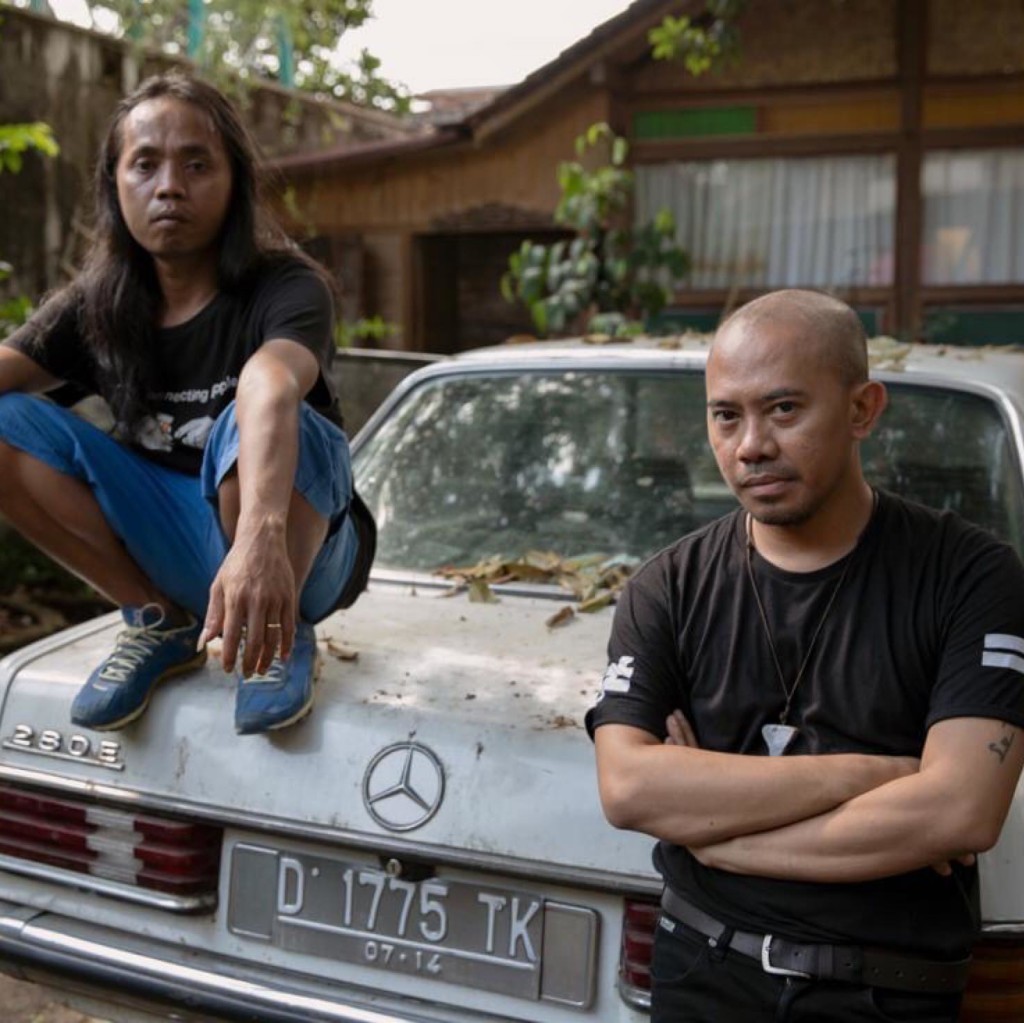
There’s a deep structure in the music, a mirror – that itself serves as a warning, a kind of Songs of Innocence and Songs of Experience echo (to switch from wayang to Blake). As Rully writes:
As you can see, these songs are structured in a way that they mirror each other: the first song (“Kekuasaan”) and the last song (“Kiamat”) are basically the underlying theme of the album. It’s how power plays its part in every step of the whole story — from having the power by knowing that the end is near, by using that power to lead people to form a new sanctuary, eventually being corrupted by power itself, and how that power shifts to those who dare to oppose. So it’s actually power that brings not only the destruction of society but doomsday itself. And in the end, what is power when the end is at hand?
“Alkisah I” and “Alkisah II” also mirror each other: one is the prologue and the other is epilogue. “Menuju Muara” and “Fasih” also mirror each other: one is about preaching to bring everybody together to form a new society, and the other is from the opposing point of view. “Istana” and “Kabau” are centerpiece. “Istana” is about the realisation that power is corrupt. “Kabau” is a collection of ancient wisdom, representing things that people should lean to in order to break the cycle and avoid doom. But as seen in the story, people choose violence and revolt instead. So the cycle keeps going.
I think it’s just as important to appreciate that there is this textual meaning as well as the sonic one. Rully himself, apart from speaking to me in English and writing these texts largely in Bahasa Indonesian, also speaks his native Sulawesi, Javanese, east Javanese, and south Sumateranese.
And in turn, the mission of Alkisah is an additional reflection of this meaning.
“What we are doing with the decentralized co-release and Pasar Alkisah is actually trying to come up with solution for the danger and doomed prophecy told in the album,” Rully says. “The solution to break that vicious cycle is to share the power once you have it,” he says.
In other words, by definition, Alkisah and the festival Pasar Alkisah are meant not only to be about these artists, but templates for music making and living, for shared interrelationships.
Festival
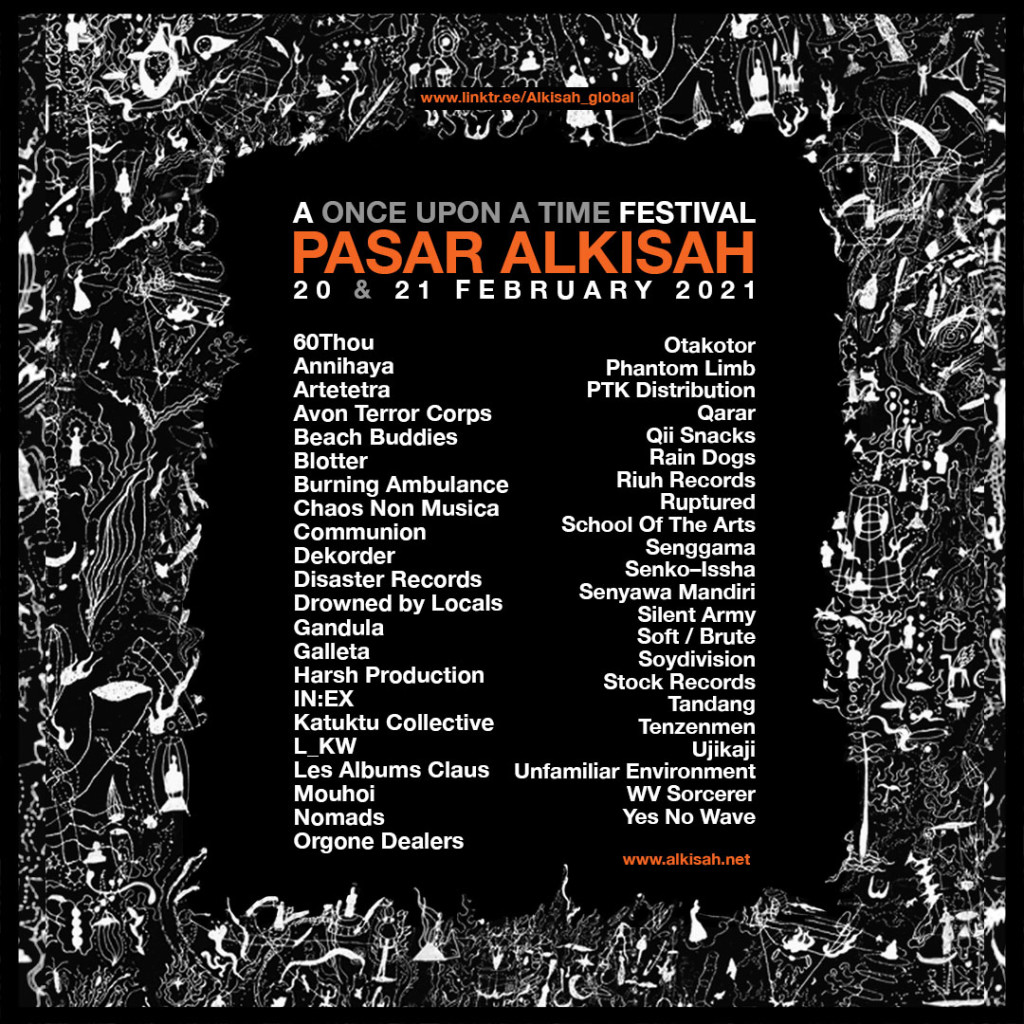
The festival runs Saturday and Sunday, from 1pm Yogyakarta local time (UTC+7), then repeats Sunday. Timetable on Google Spreadsheets. Watch and listen on Twitch.
But it’s not just passive – there are chats, sharing, and more, and labels are even encouraged to actively promote their own local wares. All of this is just a beginning, too. The organizers promise to make templates available for others wanting to produce similar efforts, and for their part, Senyawa are promising a virtual tour through the spring.
Watch for the Yes No release, too, on Sunday:
See you on the YouTube stream – check Senyawa’s channel:
https://www.youtube.com/channel/UCnQZgF_8b5X3VKKk2jRBbVA
Updated: the live stream is on Twitch:
https://www.twitch.tv/alkisah_global
And of course I’ll be checking in and out of the Discord chat, so say hi! Looks like that will be announced shortly, or follow the linktree.
Releases and more
https://linktr.ee/alkisah_global
For more reading:
052: Senyawa [extensive interview, on Tone Glow’s mailing list]
One Album Released by 44 Labels. Is This the New Global Jukebox? [The New York Times]
Artist photos courtesy Senyawa. Photo at top: Reza Darwin.